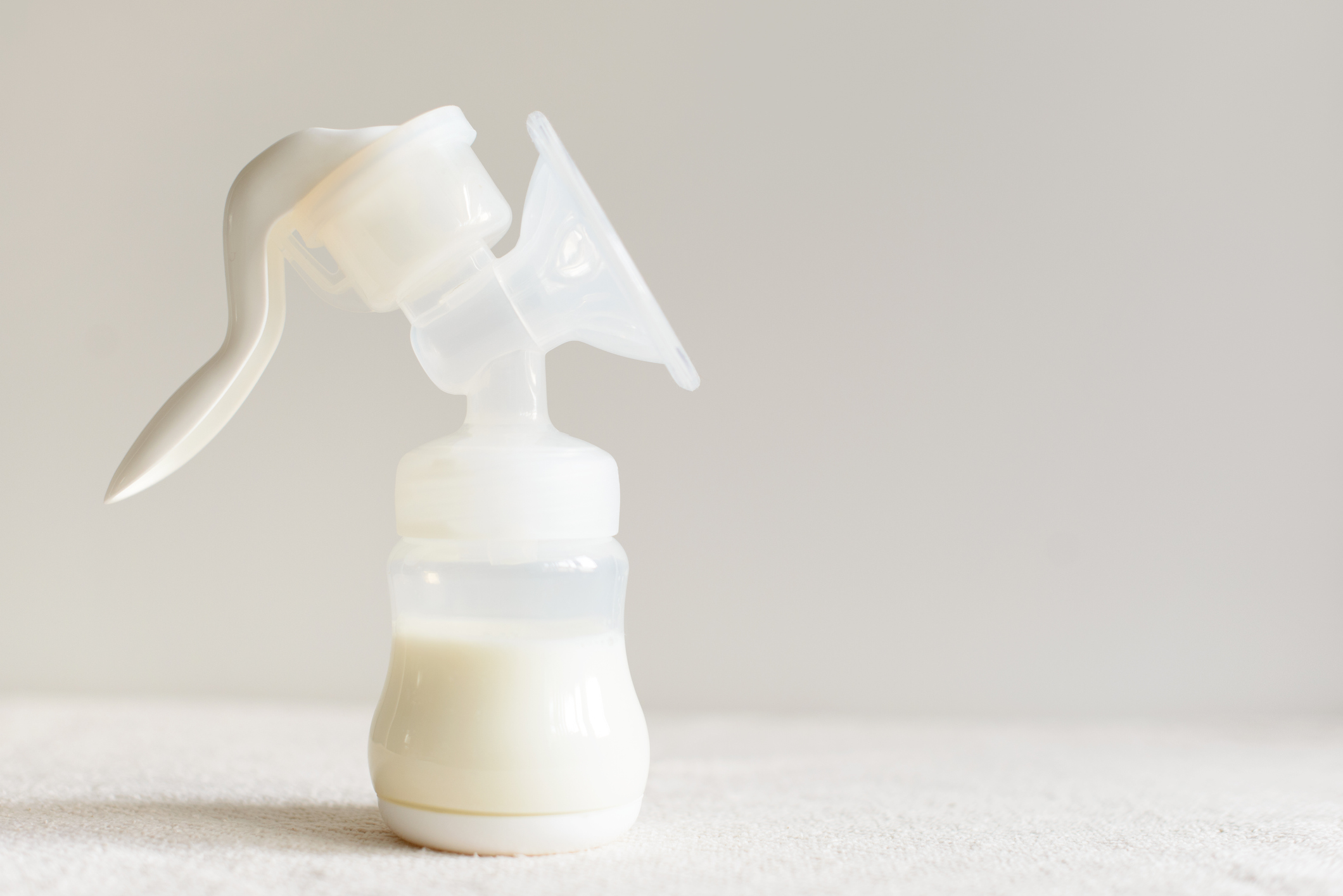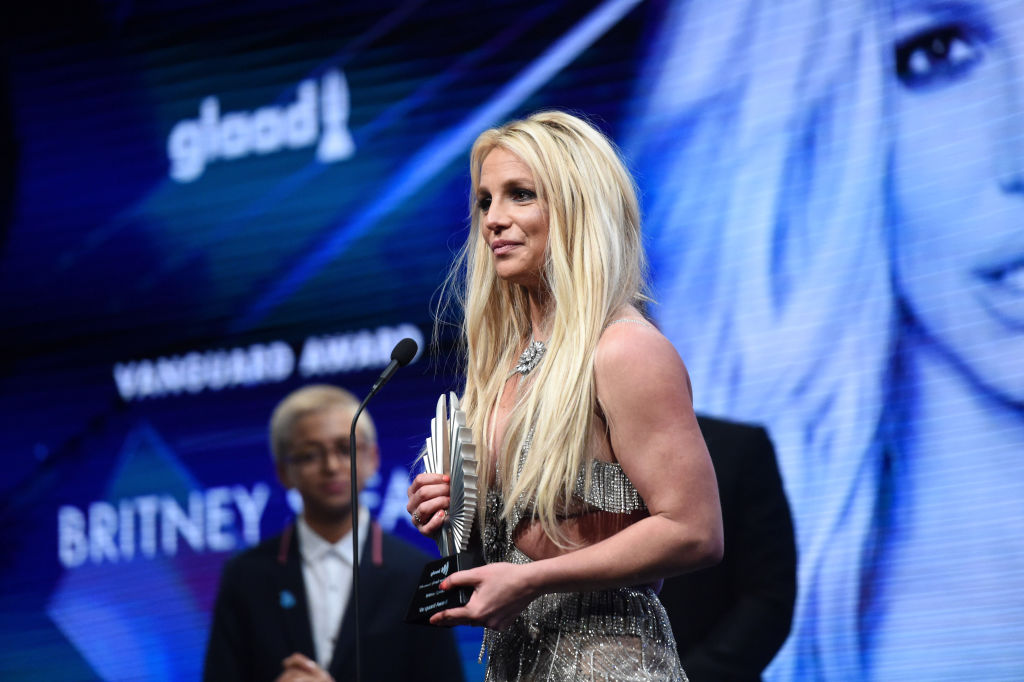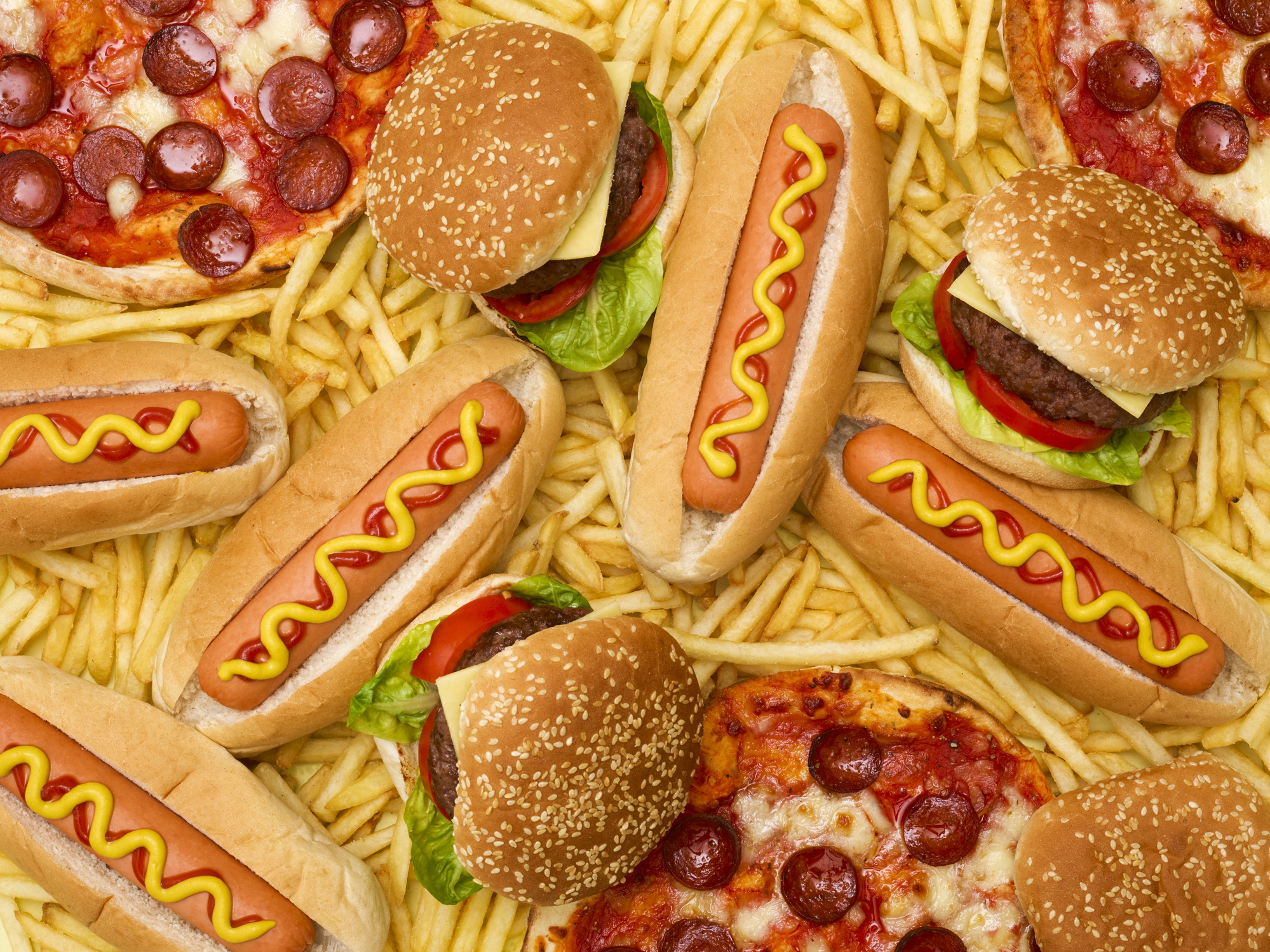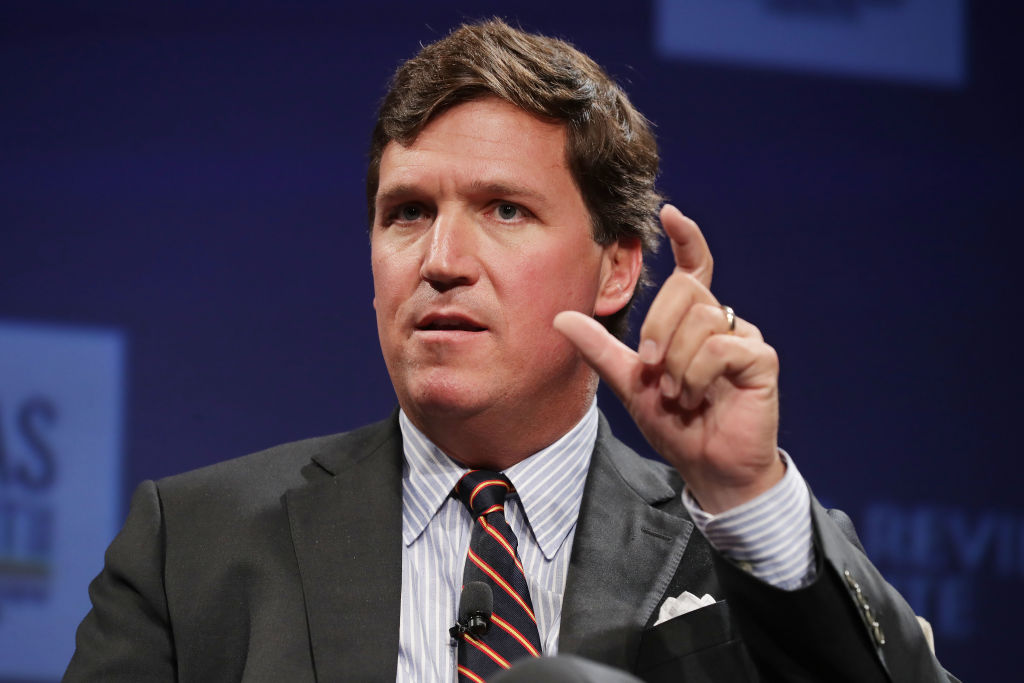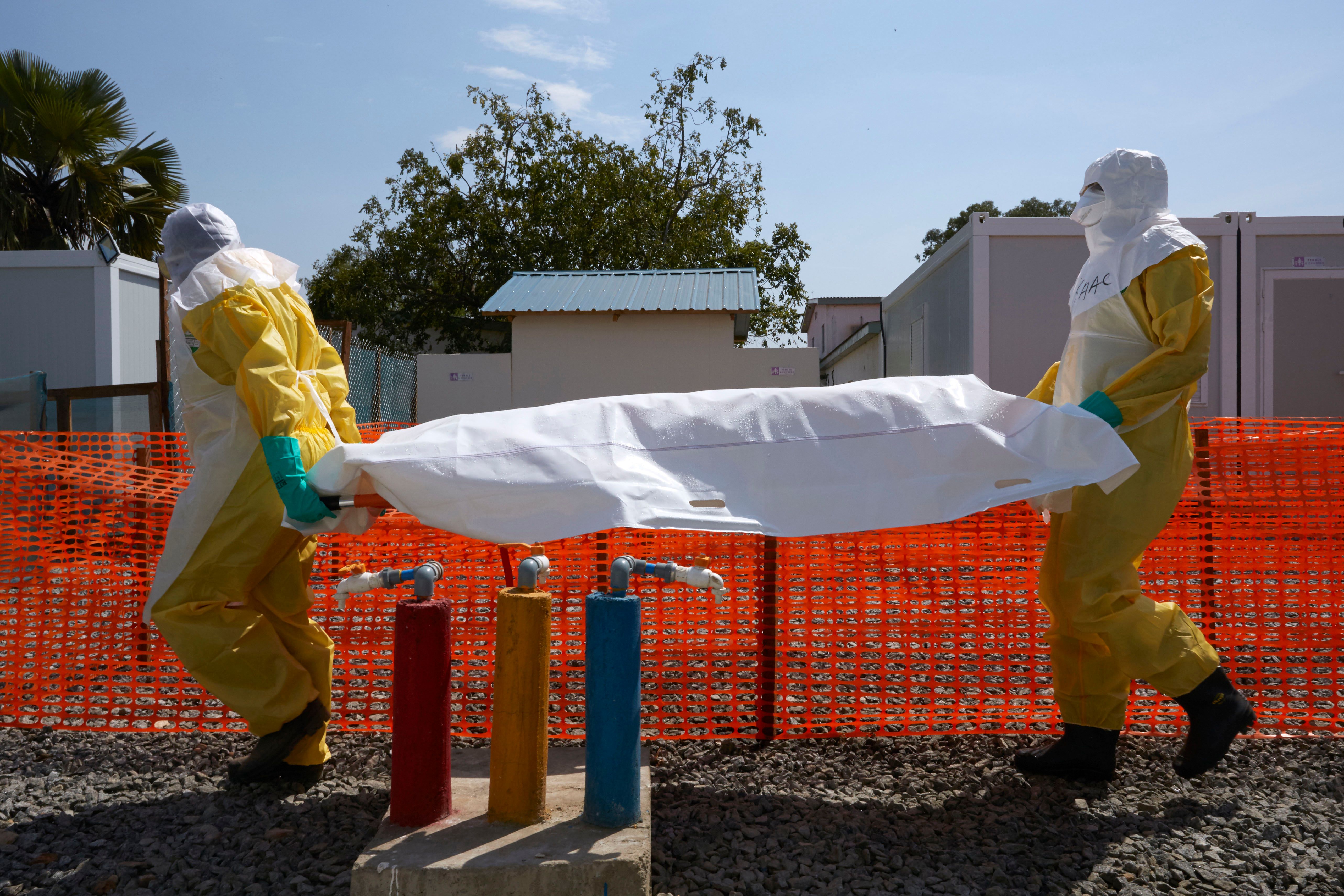This Woman Started Lactating From Her Vulva After Childbirth
Article via Health
Most new moms have loads of questions about breastfeeding after having their first child. How can I tell if my newborn is getting enough milk? Should breastfeeding be this painful? Etc, etc. However, here’s one that we haven’t seen before (until now): What happens if you start lactating from your vulva?
A case report published yesterday in the journal Obstetrics &Gynecologyhas brought this nearly unbelievable question to our attention.
The case report features the story of a 29-year-old woman who, four days after giving birth, suffered painful vulvar swelling. Her vulva was not only swollen and painful but also leaking “milky white fluid.”
Ectopic breast tissue can potentially be malignant just like regular breast tissue. The new case report explains that it’s important that doctors recognize the possibility of ectopic breast tissue in the vulva so as not to mistake it for a vulvar mass, such as a vulvar carcinoma.
The patient featured in the new case report had received sutures after giving birth, and they were covering the excretory duct in her vulva. She was given oral antibiotics to treat a “slight inflammatory reaction” that occurred around her incision. After the sutures were removed, the patient’s pain, swelling, and the milk secretion coming from her vulva decreased. The case report states that the woman was able to continue breastfeeding.
It also notes that doctors warned the patient that her ectopic breast tissue of the vulva could become malignant. However, as of one year after giving birth, the patient hadn’t opted to have her vulvar breast tissue excised.
Britney Spears accuses paparazzi of editing photos to make her look heavier
Article via CNN
Britney Spears is not happy with newly released images of her vacationing in Miami.
The singer took to Instagram late Monday to accuse the paparazzi of editing photos of her in a bikini to make her appear “40 pounds bigger” than she really is. To prove she’s thinner, she posted a video of herself with this message, “So, this is the day after me on my boat ride. Do I look any different today than yesterday?” she says as she twirls while wearing a crop top. In the caption, she added, “People always say people or celebrities cheat with their images, but never do they question the papparazzi for selling your pic that they have messed with !!!! This was all done within the same 17 hours !!!!”
The photo agency that took the photos, MEGA, had this to say to Page Six. “We think Britney looks great and it’s ludicrous to suggest the photos or video were altered in any way,” a representative for the company said. “They were not. We shot thousands of photos of her over the weekend and are very happy to let her see the original files if she so wishes. It was good to see her happy and having fun and we wish her well.”
Spears’ Instagram post comes in the midst of the #FreeBritney social media movement, driven by some fans who believe she is a prisoner in her own home because of a court-ordered conservatorship that dates to 2008. Under its terms, the singer’s father, Jamie Spears, makes decisions about her day-to-day affairs and medical needs.
Some fans have alleged Spears also cannot access her social media accounts. Sources close to Spears previously have told CNN the claims are entirely false.
The star’s latest Instagram post shows her not only enjoying a sunny vacation but also taking control of the narrative.
CNN has reached out to Spears’ camp and MEGA for additional comment.
Check out some Lovelyti videos:
#FreeBritney Goes Viral As Rumors Swirl That She Is Being Held Against Her Will!
Your food cravings probably aren’t a sign of a hidden nutrient deficiency
Article via CoachNine
Food cravings can take over the most rational of brains, forcing us to do anything to get our hands on that chocolate bar/burger/Diet Coke.
You might have heard chocolate cravings signal magnesium deficiencies, or that hankerings for red meat means you’re low in iron or protein.
But Dr Vincent Ho, from the University of Western Sydney’s School of Medicine, says there’s little evidence that our cravings are so explicit.
More likely, says Dr Ho, is that we have a psychological “conditioned” response where we associate particular foods with happy times, which makes us want to replicate them.
“Food cravings are an intense desire to consume a particular food that is quite difficult to resist; different of course from hunger, which can be satisfied by any food,” he tells Coach.
“It’s not so much a physiological [occurrence] as much as a sociocultural one.”
Dr Ho points to the fact chocolate is the number one reported North American craving, while only 1 percent of Egyptian men and 6 percent of Egyptian women have felt a similar craving, and that Japanese women more commonly report sushi and rice cravings.
“People thought maybe chocolate cravings were caused due to the component called phenyl-ethylamine, the so-called substance involved in romantic love,” he says.
“But we know that’s not the case because other foods like cheddar cheese and salami have much higher amounts but don’t cause anywhere [near] the same amount of cravings as chocolate.
“Phenyl-ethylamine [also] doesn’t appear to cross the blood-brain barrier into the brain either, so it’s really a myth.”
Dr Ho says the famous “Pavlov’s dog” study gave a powerful insight into how cravings are conditioned. The 18th century scientist noted that dogs salivate when food is put in front of them, then he started adding a bell when producing their food bowl. In time, simply ringing the bell was enough to induce salivation, even if no food was shown.
“In a very similar way, there is that sort of conditioning theory that is thought to underpin food cravings,” Dr Ho explains.
“If having chocolate is associated with a happy time, that becomes a very strong association. You could be driving and eating chocolate, and in the future, just the act of driving may be enough to trigger the food craving because of the conditioning response.”
Stress and our gut bacteria are also thought to influence our food cravings.
Naturopath Andrea Strand uses her clients’ cravings to get an insight into their health, but says cravings often signal a broader diet imbalance rather than a specific nutrient need.
“It might be that a person eats and craves high sugary foods [because] they are not getting the nutrients required to help stop the sugar craving,” she explains.
“The ideal diet for blood sugar regulation is lots of vegetables, two pieces of fruit a day and good protein sources at breakfast, lunch and dinner.”
If you get those elements right then Strand says your sugar cravings should naturally diminish.
“Often people come in with sugar cravings and by making dietary changes, supporting their adrenal glands and helping them develop better sleep hygiene, within one to two weeks, their cravings are gone,” she says.
How can you get rid of cravings?
Adopting a balanced, healthy diet is one of the best things you can do to “crowd out” the unhealthy foods.
“If you decrease the frequency of consuming the foods you commonly crave, you get a decrease in cravings of those foods,” Dr Ho explains.
“If you were to have chocolate twice a month instead of every week, that is going to reduce your craving for chocolate.”
Secondly, he suggests using mindfulness to “decouple” the brain association by acknowledging your craving is simply a thought you are having.
“A study found that people who adopted mindfulness were three times more likely to abstain from chocolate than participants using cognitive behavioural therapy [CBT] techniques, which involves challenging inaccurate thoughts and replacing them with more accurate ones,” he says.
Thirdly, he suggests trying to create positive, happy associations with healthy foods to “sub in” better cravings. So that might mean having some beautiful roast vegetables with a family meal or some hommus and vegie sticks when socialising with your friends.
At the same time, Strand says trying to eat a balanced diet encompassing lots of whole foods from nature should ensure your body is well nourished and less likely to present niggling cravings.
“Chromium, found in beef, poultry, wholegrains and vegetables, as well as magnesium, found in spinach, quinoa, almonds, cashews and dark chocolate, are both required for sugar uptake,” she says.
“So if you eat plenty of those foods, you might not get those sweet cravings.”
Thousands of cancer diagnoses tied to a poor diet, study finds
Article via CNN
Your diet may have more impact on your cancer risk than you might think, a new study has found.An estimated 80,110 new cancer cases among adults 20 and older in the United States in 2015 were attributable simply to eating a poor diet, according to the study, published in the JNCI Cancer Spectrum on Wednesday.
“This is equivalent to about 5.2% of all invasive cancer cases newly diagnosed among US adults in 2015,” said Dr. Fang Fang Zhang, a nutrition and cancer epidemiologist at Tufts University in Boston, who was first author of the study.
“This proportion is comparable to the proportion of cancer burden attributable to alcohol,” she said.
The researchers evaluated seven dietary factors: a low intake of vegetables, fruits, whole grains and dairy products and a high intake of processed meats, red meats and sugary beverages, such as soda.
“Low whole-grain consumption was associated with the largest cancer burden in the US, followed by low dairy intake, high processed-meat intake, low vegetable and fruit intake, high red-meat intake and high intake of sugar-sweetened beverages,” Zhang said.
The study included data on the dietary intake of adults in the United States between 2013 and 2016, which came from the National Health and Nutrition Examination Survey, as well as data on national cancer incidence in 2015 from the US Centers for Disease Control and Prevention.
The researchers used a comparative risk assessment model, which involved estimating the number of cancer cases associated with poor diet and helped evaluate how much diet may play a role in the US cancer burden. Those estimations were made using diet-cancer associations found in separate studies.
“Previous studies provide strong evidence that a high consumption of processed meat increases the risk of colorectal cancer and a low consumption of whole grains decreases the risk of colorectal cancer,” Zhang said. “However, our study quantified the number and proportion of new cancer cases that are attributable to poor diet at the national level.”
The researchers found that colon and rectal cancers had the highest number and proportion of diet-related cases, at 38.3%.
When the findings were looked at by diet, low consumption of whole grains and dairy products and eating a lot of processed meats contributed to the highest cancer burden.
Also, men 45 to 64 years old and ethnic minorities, including blacks and Hispanics, had the highest proportion of diet-associated cancer burden compared with other groups, the researchers found.
The study had some limitations, including that the data couldn’t shed light on how the association between diet and cancer risk may change as a person ages.
Additionally, more research is needed to determine whether a similar association would emerge for other years and time periods in the United States.
All in all, “diet is among the few modifiable risk factors for cancer prevention,” Zhang said. “These findings underscore the needs for reducing cancer burden and disparities in the US by improving the intake of key food groups and nutrients.”
Ultraprocessed foods occupy a growing part of the world’s diet. A 2016 study found that 60% of the calories in the average American diet come from this kind of food, and a 2017 study found that they make up half of the Canadian diet. They make up more than 50% of the UK diet, and more of the developing world is starting to eat this way.
Yet you may protect yourself from cancer by avoiding ultraprocessed foods and instead choosing organic foods, research has shown.People who frequently eat organic foods lowered their overall risk of developing cancer, according to a study published last year in the medical journal JAMA Internal Medicine. Specifically, those who primarily ate organic foods were more likely to ward off non-Hodgkin lymphoma and postmenopausal breast cancer than those who rarely or never ate organic foods.
Additionally, according to a study published in the same journal in February, we face a 14% higher risk of early death with each 10% increase in the amount of ultraprocessed foods we eat.
Why are people eating more of these processed foods?
“We are living in a fast world, and people are looking for convenient solutions. We are always stretched for time,” Nurgul Fitzgerald, an associate professor in the Department of Nutritional Sciences at Rutgers University, said earlier this year.
“People are looking for quick solutions, a quickly made meal.”
When selecting food, taste is the No. 1 factor for most consumers, she said, but price and convenience are also important, and with ultraprocessed foods, that convenience factor is “probably top of the list: grab and go, ready to eat.”
Ayesha Curry claps back at baby body-shamer suggesting she put her infant on a diet
Article via MercuryNews
Body shaming new mothers is bad enough but targeting their babies is just plain out of bounds.
Of course Ayesha Curry is no stranger to social media scorn. The 30-year-old celeb mom has taken her share of punches on Instagram, certainly. But when trolls vented their spleen on her 10-month-old infant, Canon, Curry clapped back. Hard.
It all started when she posted a photo of the smiling Curry clan celebrating her husband Steph Curry’s NBA Western Conference finals victory. That’s when the haters started in.
First one Instagram commenter asked if she was pregnant. Curry didn’t skip a beat, retorting: “Absolutely not LOL. My 30 lb son is just breaking my back in every photo.”
Immediately, people started to weigh in on the size of the youngest Curry baby. “30lbs at 10 months??” one comment snarked. “Sheesh.”
Someone else went further, suggesting Ayesha should put her infant son on a diet. “Maybe portion-control his food a bit,” the commenter wrote, according to Yahoo.
The comment has since been deleted — but not before Ayesha had a chance to fire back at the baby body-shamer.
“Excuse you?” she fired back. “No. Just no.”
Check out some Lovelyti videos:
Steph Curry Defends Ayesha Curry’s Comments About Women’s Fashion Choices
Ayesha Curry Says NBA Finals Are ‘Rigged’ AFTER Steph Curry Gets Ejected~Social Media GOES IN
“FANS” go off on Steph Curry for refusing to sign a kid’s jersey+ Ayesha Curry defends her husband!
Planned Parenthood Leader Says Men Can Have Children, Tucker Begs To Differ
Article via DailyCaller
Fox News host Tucker Carlson took issue on Tuesday with Planned Parenthood of New York City president Laura McQuade’s contention that “transgender men” can get pregnant.
During Tuesday night’s episode of his show, Tucker began his remarks on the subject by quoting McQuade at a Tuesday abortion rally.
“In the middle of an abortion rally today, Laura McQuade, who runs Planned Parenthood, made a remarkable claim,” Carlson said. “Restrictions on abortion she said are, quote: ‘Not just an attack on women, but an attack on anyone who can or might get pregnant, including transgender men and gender non-conforming people.’”
The Fox News host then launched into a defense of biology:
Got that? Laura McQuade, who runs Planned Parenthood, says that men can get pregnant. Huh? How does that work? NBC, a former news organization, ran a piece over the weekend making exactly the same claim, claiming a man delivered a baby. Keep in mind that no man in human history has ever done that. It seems like a big story. It seems like all of a sudden it’s happening everywhere. Men delivering babies. What has happened? Has biology been reordered? No. In fact, it’s still true. It will always be true that only women can bear children. What has changed is that the left has decided to impose its fantasy life on the rest of the country. To do that it must get the rest of us to lie about science. Amazingly most of our leaders appear happy to do that to go along with it. We are not going to go along with that, not because we begrudge other people their fantasies, but because reality is worth defending.
Azealia Banks Sides With Alabama: “Abortion Is A Luxury Provided By Modern Science”
Article via HotnewHipHop
Azealia Banks voiced her controversial remarks in response to Munroe Bergdorf’s personal stance on the abortion topic.
Azealia Banks is the latest public figure to address the issue of Alabama’s change in legislation governing abortion. For the sake of objectivity, I’ll refrain from criticizing her opinion, mostly due to the fact that as a woman of color, Azealia Banks has more to gain/lose from this ongoing debate. That said, Azealia Bank’s decision to stand behind what other’s perceive as oppressive measures by the Alabaman senate (and other caucuses in the Confederate States) is riddled with nuances and contradictory statements.
For starters, Azealia Banks stands on two fronts. She stands behind the criminalization of Abortion, but only as it pertains to control the Pharmaceutical Industry maintains over the practice itself. In the closing sentence of her public address, Banks defines abortion as a “modern luxury provided by modern science,” while altogether showing a semblance of solidarity with the anti-establishment and pro-choice movement in America.
As she clearly states in the caption of the Instagram posting, her PSA was written in response to Munroe Bergdorf dedicated efforts on the same platform. For added context: Bergdorf is an English transgender model and activist who was herself ejected from a lucrative L’Oréal sponsorship after her racial commentary was taken out of context.
Check out some Lovelyti videos:
Azealia Banks’ Wild N’Out episode airs, Nick Cannon reaches out+ Azealia Apologizes to Elon Musk
Twitter & The church of satanism GO OFF on Azealia Banks after she admits to Sacrificing chickens? ?
Azealia Banks Breaks down crying in Ireland~ They’re all ‘inbred Leprechauns’
Best Ways to Use Lovelyti’s Healing Honey Sticks
Fruit
Drizzle the honeysticks over a fresh bowl of fruit for a quick, healthy snack. Honey pairs well with pears, apples, and strawberries.

Beverages
Avoid the artificial sweeteners, Instead stir the honeysticks into your coffee in the mornings. Or stir the honeysticks into your Lovelyteas to wind down in the afternoons.
Carbs
Spread the honey sticks over your toast, bagels and cassava (and add some raspberries or blueberries and nuts) for a healthy breakfast or snack.

Dairy
Flavor your cream cheese by stirring in one or two honeysticks.
Flavor your butter too for a boost to your baking recipes or marinades.
Add a honeystick to your oatmeal to spice things up.
Power Snacks
Of course you can add honey to your peanut or quinoa power balls.
Use the honeysticks to make your own granola.

Get your honeysticks on Lovelytea.net!

Willow Smith Reveals She Used to Cut Herself
Article via PopCulture
Willow Smith shared her story of self-harm in an episode of Jada Pinkett Smith‘s Red Table Talk, sparking conversations about mental health and coping mechanisms.
The Smith family has put some important topics into the public conversation in the last year on Red Table Talk, the generation-spanning talk show on Facebook Watch. They revisited some of their biggest moments on Thursday at an event in Los Angeles, celebrating the talk show’s upcoming second season. According to TooFab, Jada Pinkett Smith said that her daughter has done a lot of good by opening up about her history of self-harm.
“I’ve had a lot of young people come up to me about Willow as well,” she said. “In that particular episode when she kind of revealed about self-harm, we had people in our family that we didn’t even know that felt like now they could reveal what had been going on with them because Willow did.”
Pinkett Smith said that her daughter’s revelation opened up important conversations throughout their whole family, and now the world is having those discussions as well.
“That particular episode was a deeply healing episode within our internal family because there had been a few people who had been going through stuff that none of us knew about,” she continued. “Because of Willow’s strength and courage, we were able to connect on a different level. That was a really powerful episode for us personally as a family.”
Willow Smith told her story in one of the show’s first episodes, back in May of 2018. She recalled feeling like she has lost her “sanity” in 2010, after the explosive release of her song “Whip My Hair.”
“I had just stopped doing singing lessons and I was kind of just in this gray area of, ‘Who am I? Do I have a purpose? Is there anything I can do besides this?'” she explained. “After the tour, the promotion and all that, they wanted me to finish my album and I was like, I’m not going to do that,” she recalled.
“After all of that kinda settled down and it was like a kind of lull, I was just listening to a lot of dark music. It was just so crazy and I was plunged into this black hole, and I was cutting myself,” she went on.
That caught Pinkett Smith off guard, as she apparently heard it for the first time on air. Willow said that she had kept her self-harm a secret from everyone except for one friend.
“I never talk about it because it was such a short, weird point in my life,” she said. “I honestly felt like I was experiencing so much emotional pain, but my physical circumstances weren’t reflecting that. One night I was like, this is actually psychotic and after that I just stopped.”
Red Table Talk will be back for another season on Facebook Watch.
Check out some Lovelyti videos:
AUGUST ALSINA ALLUDES TO AFFAIR WITH JADA PINKETT SMITH IN NEW SONG FULL #BREAKDOWN
Jada Pinkett’s Red Table Talk~The practice of white female superiority
Will Smith’s EX Wife Sheree Fletcher CHECKS Alexis Arquette For Saying Will & Jada Are GAY
Doctors fighting Ebola in the Congo are forced to wear disguises to avoid being SHOT by militiamen
Article via DailyMail
- Medics ditching their scrubs and lying about their jobs to avoid conflict in Congo
- Militiamen believe Ebola is a conspiracy against them and are attacking workers
- Death toll 1,161 while infection count shot to 1,760 on Thursday, officials said
‘Our staff has to lie about being doctors in order to treat people,’ Tariq Riebel, emergency response director for the International Rescue Committee (IRC), told The Washington Post.
The Congo is currently facing the second deadliest outbreak of the killer virus ever, with the death toll climbing to 1,161 on Thursday.
The infection count, meanwhile, has shot to 1,760, Congo’s Ministry of Health said.
Armed militiamen believe Ebola is a conspiracy against them and have repeatedly attacked health workers battling the epidemic.
There have been 119 attacks this year against aid workers, with eighty-five being wounded or killed, according to the World Health Organization (WHO).
It comes as aid groups warn they could run out of money in weeks.
The International Federation of Red Cross and Red Crescent Societies said that unless it gets more funding it won’t be able to continue providing support to crews burying Ebola victims.
Funerals were a major source of virus transmission during the worst ever Ebola epidemic in 2014-2016.
Each Ebola burial costs the equivalent of £400 for, among other things, the protective gear for workers.
The Congo Ebola epidemic has escalated sharply over the past month.
The health ministry says 20 per cent of all cases since August have been reported in just the last three weeks.
Health experts warn that because of security issues it has been difficult getting into some areas to vaccinate those most at risk.
‘The number of new cases continues to rise, in part due to repeated incidents of violence affecting the ability of response teams to immediately identify and create vaccination rings around all people at risk of contracting Ebola,’ the WHO said in a statement.
‘The number of new cases continues to rise, in part due to repeated incidents of violence affecting the ability of response teams to immediately identify and create vaccination rings around all people at risk of contracting Ebola,’ the WHO said in a statement.
Dr. Osman Dar, a global health expert at Chatham House and member of the Royal College of Physicians Edinburgh and Public Health England, said the death toll could spiral to rival the 11,310 who were killed in Liberia, Guinea and Sierra Leone five years ago, he said.
Dr Osman Dar, a global health expert at Chatham House and member of the Royal College of Physicians Edinburgh and Public Health England, said the death toll could spiral to rival the 11,310 who were killed in Liberia, Guinea and Sierra Leone five years ago, he said.
The 2014 outbreak in West Africa began when an 18-month-old boy in Guinea got infected by a bat in December 2013, and the illness quickly spread to neighbouring countries.
By the time the World Health Organization released its first situation report in August 2014, more than 3,000 people had been infected and 1,546 killed.
A year later the number of cases had rocketed to 28,073 and 11,290 people had died.


